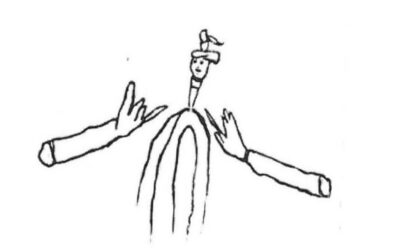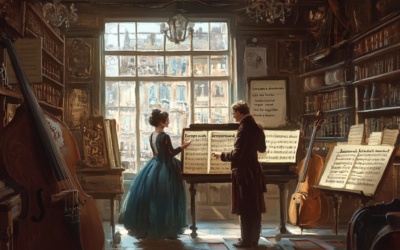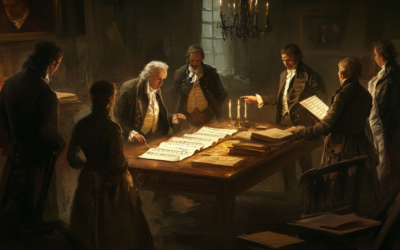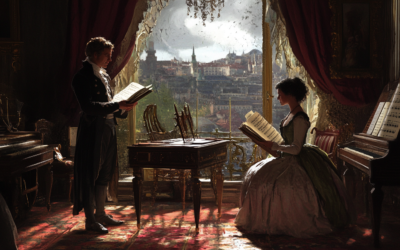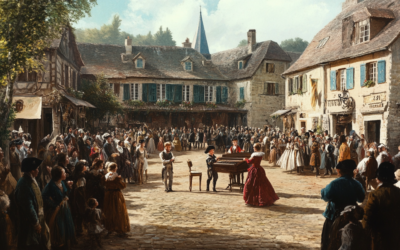The Golden Spur
A Farce of Honour in Mozart's Time
How a once prestigious title became a symbol of ridicule for Mozart and Casanova
Mozart: The Fall of the Gods
This book offers a fresh and critical look at the life of Wolfgang Amadeus Mozart, challenging the myths that have surrounded him for centuries. We strip away the romanticised image of the “natural genius” and delve into the contradictions within Mozart’s extensive biographies. Backed by nearly 2,000 meticulously sourced citations, this work invites readers to explore a deeper, more complex understanding of Mozart. Perfect for those who wish to question the traditional narrative, this biography is a must-read for serious music lovers and historians.
"It was said that anyone who wore the Speron d’Oro was considered an ass."
Mozart: The Fall of the Gods
On Saturday, 19 May 1770, Leopold wrote from Naples to his wife about the Miserere, mentioning a newspaper article that was never found again. In his letter, he reassured His Grace, the Prince of Salzburg, that Wolfgang would soon receive a great honour.
Leopold and Wolfgang arrived in Rome on Tuesday, 26 June, and that very day, Cardinal Andrea Negroni, responsible for the Vatican Secretariat of Briefs, was tasked with registering the conferment of the Speron d’Oro to Wolfgang, enrolling him in the Order of the Militia Aurata.
However, it was not the Pope who personally granted him the title, as some accounts would later falsely claim, but rather Cardinal Pallavicini, possibly due to Leopold’s insistence or pressure from the Pallavicini family of Bologna, who had close ties with Austria.
The awarding of the Speron d’Oro to Mozart was not the result of any extraordinary musical achievement, such as the apocryphal story of the transcription of Allegri’s Miserere. It was a simple matter of networking and pressure applied on the Vatican. This honour, which Leopold proclaimed proudly as a great fortune, was by then more of a farce than a genuine mark of distinction. By Mozart’s time, the Speron d’Oro had lost all its former value. It had become a mere trinket, almost laughable, and often mocked. The title was no longer an indication of merit, but rather something that could be obtained through money or influence.
The same Speron d’Oro was given to none other than the notorious Casanova.
“Reverend Father,” Casanova wrote in his Memoirs, ‘at the home of Abbot Momolo, most holy fucker, I saw a young woman named Maria, of whom you are the confessor. I have fallen in love with her, and in an attempt to seduce her, I want to offer her money. Here is the sum for the good girl, Reverend Father.’ I was sitting at the table with Mengs when a messenger from the Holy Father arrived. He asked Mr Mengs if I lived there, and after the gentleman pointed me out, he handed me, on behalf of the Holy Father, the cross of the Order of the Golden Spur, along with the diploma and the patent bearing the papal seal.”
Casanova, like Mozart, initially felt proud of the honour. In fact, Casanova explains in his Memoirs that the medal was no longer a symbol of genuine merit but more an object of ridicule. He recalls being advised in Russia to remove the medal from his neck to avoid being laughed at. Similarly, Leopold had pressured his son to wear the cross and sign his compositions as “Knight W. A. Mozart.” However, Wolfgang, much like Casanova, soon came to realise that the title had lost its lustre. He was ridiculed and mocked, as he himself wrote in a letter. Over time, he discarded the title entirely, considering it more a burden than a badge of distinction.
Receiving the Speron d’Oro was not a reflection of Mozart’s genius. It was no longer an honour that musicians aspired to, unlike Gluck, who had received it at a time when it still held some value. By Mozart’s time, the award had become so devalued that many, like Casanova, believed it was better not to receive it at all. In fact, it was said that anyone who wore it was considered an ass.
As time passed, Mozart distanced himself from the Speron d’Oro, recognising, like Casanova, that it was nothing more than an empty gesture. The title, which could easily be purchased, became so devalued that by 1841, Pope Gregory XVI reformed the Order entirely, replacing it with the Order of St Sylvester.
You May Also Like
Unveiling the Truth Behind the Drawing
H. S. Brockmeyer’s latest research unravels the mystery behind a July 5, 1791, letter from Mozart to his wife. This remarkable investigation uncovers the original, unembellished drawing Mozart included—vastly different from the altered version widely reproduced in collections today. The discovery raises significant questions about historical accuracy and the intentional shaping of Mozart’s legacy.
The Deceptive Nature of Mozart’s Catalogue
The Thematic Catalogue traditionally credited to Mozart is fraught with inaccuracies, suggesting that many of his famous works might not be his at all. This prompts a necessary reevaluation of Mozart’s legacy and the authenticity of his compositions.
The Mozart Myth Unveiled: A Deeper Look
Mozart’s legacy is far from the untarnished narrative of genius that history would have us believe. The web of deceit woven around his name by those closest to him, including his own widow, reveals a much darker story.
The Other Side of Mozart’s Legacy
Explore the untold story of Mozart, where myth and reality collide. Our critical examination of his life and works reveals a legacy shaped by profit, myth-making, and misattribution. Join us in uncovering the truth behind the man and his music.
The Deception Surrounding Mozart’s Legacy
Anton Eberl’s confrontation with Constanze in 1798 exposed a web of deceit surrounding Mozart’s legacy, revealing that several of his compositions were falsely attributed to the late composer. This chapter uncovers the ethical dilemmas and controversies that have marred the posthumous reputation of one of history’s most celebrated musicians.
Leopold’s Invisible Hand
Behind the glittering performances of young Wolfgang and Nannerl Mozart lay the meticulous guidance of their father, Leopold. Often considered a mere teacher, Leopold’s role in composing and shaping their early musical successes has been largely overlooked. Was the child prodigy truly a genius, or was it Leopold who orchestrated his son’s rise to fame?


